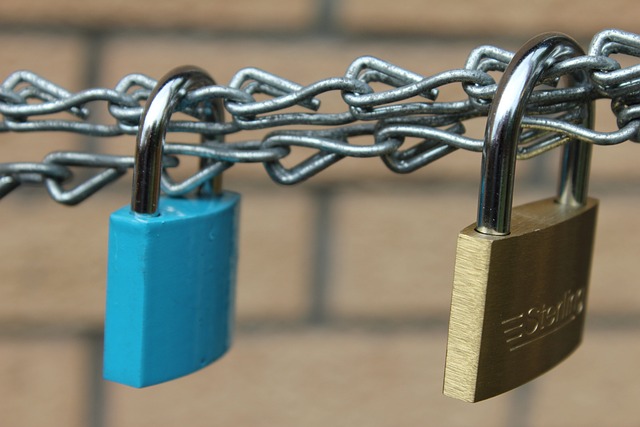Businesses implementing high-security locks must navigate a complex regulatory landscape, with varying regional and industry standards. Staying compliant involves understanding data privacy, physical security, and accessibility rules set by governing bodies. Non-compliance incurs penalties; proactive adherence through regular audits, advanced lock systems, and policy management mitigates risks, strengthens security, and enhances business reputation.
In today’s digital era, ensuring regulatory compliance is paramount for commercial security solutions. With evolving laws and increasing cyber threats, businesses must navigate a complex landscape of security regulations. This article delves into essential aspects, including understanding security regulations, the legal perspective on high-security locks, effective compliance strategies, and best practices for lock system management. By exploring these key areas, we equip folks with knowledge to implement robust security measures, such as high-security locks for businesses, thereby fostering a safer environment.
Understanding Security Regulations for Businesses
For businesses looking to implement robust security measures, understanding the regulatory landscape is paramount. Security regulations vary across regions and industries, but they’re designed to protect sensitive data, prevent harm, and ensure fair practices. When integrating high-security locks for businesses, it’s crucial to familiarize yourself with local and sector-specific rules. This includes compliance with standards set by governing bodies that oversee data privacy, physical security, and accessibility.
Businesses must stay abreast of updates to these regulations, as non-compliance can result in severe penalties. Regular audits and assessments are recommended to ensure your security solutions meet the required standards. By proactively understanding and adhering to these rules, businesses can mitigate risks, safeguard their operations, and maintain the trust of their customers and stakeholders.
High-Security Locks: A Legal Perspective
High-security locks are an essential component of commercial security solutions, offering businesses robust protection against unauthorized access. From a legal perspective, the use of high-security locks is governed by various regulations and standards designed to ensure public safety and prevent tampering or fraud. For instance, many jurisdictions mandate that specific types of high-security locks be installed in critical areas like safes, vaults, and secure rooms containing sensitive data or valuable assets.
Compliance with these regulations is not just a legal requirement but also a strategic decision for businesses. Using approved high-security locks can enhance a company’s reputation for diligence and security, protecting it from potential liability claims. Moreover, adhering to industry standards ensures that the locks are tested and certified, providing reliable protection against sophisticated breaking techniques, thus reinforcing the overall security posture of the business.
Compliance Strategies for Commercial Security
Maintaining regulatory compliance is paramount for commercial security solutions, ensuring businesses protect their assets while adhering to legal standards. Effective compliance strategies begin with a thorough understanding of applicable laws and industry-specific regulations, such as those related to data privacy and physical security. Businesses should implement robust policies and procedures that align with these requirements.
For instance, employing high-security locks for businesses is a practical step towards enhancing physical security. This involves selecting locks with advanced features, such as high-grade materials, complex locking mechanisms, and integrated access control systems. Regular audits and updates to security protocols are essential to stay ahead of evolving regulatory demands, guaranteeing continuous compliance and robust protection.
Best Practices for Lock System Management
Maintaining regulatory compliance in commercial security solutions begins with best practices for lock system management. Businesses should implement robust policies that dictate who has access to changing lock combinations, ensuring only authorized personnel can modify settings. Regular audits and inventory checks are crucial to verify every high-security lock for businesses is up-to-date and functional. This includes routine inspections of master key systems, which often serve as the primary control mechanism in complex commercial facilities.
Additionally, integrating advanced access control technologies with physical locks enhances security measures. Digital solutions allow for remote monitoring and real-time updates, ensuring compliance with evolving regulatory standards. By combining mechanical strength with digital intelligence, high-security locks for businesses can offer multi-layered protection against unauthorized entry, fire hazards, and other potential risks.
Regulatory compliance is non-negotiable for commercial security solutions, ensuring business operations run smoothly and safely. By understanding relevant security regulations, implementing effective compliance strategies, and adopting best practices for lock system management, businesses can mitigate risks associated with high-security locks. Investing in these measures not only safeguards assets but also instills confidence in clients and partners, positioning your business as a leader in security innovation. High-security locks for businesses, when integrated thoughtfully into comprehensive compliance frameworks, offer robust protection against evolving threats in today’s digital age.
